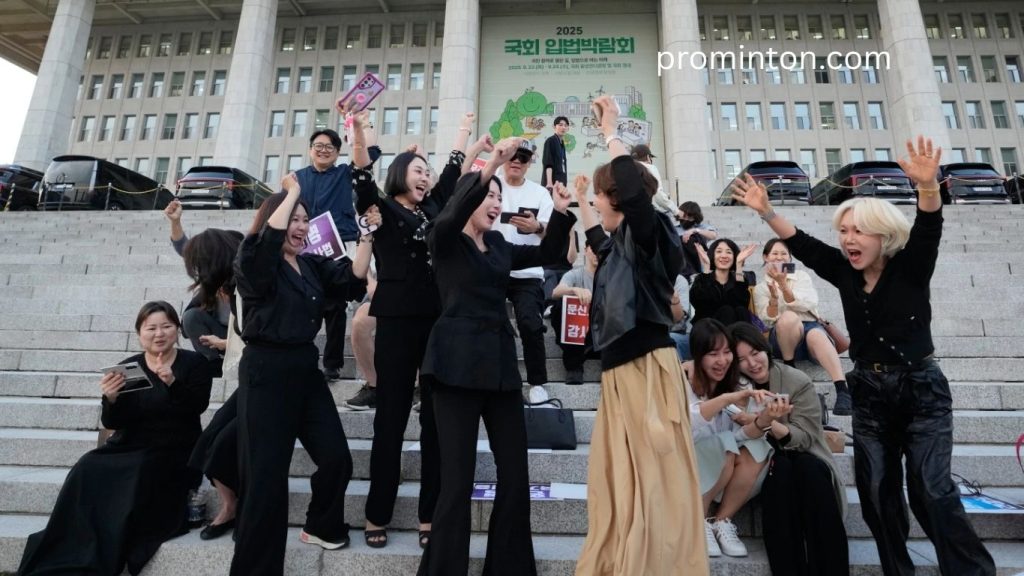Tattoo artists in South Korea no longer need to fear punishment for practicing their craft. In a groundbreaking decision, the South Korean parliament approved the Tattooist Act, ending decades of restrictions that required tattooists to hold medical licenses. This decision marks a cultural and legal turning point for the country, opening doors for thousands of artists and millions of citizens who view tattoos as a form of identity and creative expression.
The new law passed unanimously in the National Assembly with a 195-0 vote, signaling broad political support. Under the act, tattoo artists will be officially licensed and placed under government supervision. For tattooists who have worked in legal limbo for over three decades, the vote represents not only legitimacy but also newfound freedom.
Read More: 10 Cringeworthy Vegan Sayings That Instantly Spark Eye-Rolls and Test Your Patience
Why This Law Matters
For years, South Korea stood out as the only industrialized nation requiring medical licenses for tattooing. The restriction originated in 1992, when the Supreme Court ruled that tattooing counted as a medical procedure due to potential health risks from needles and ink. While the law remained in effect, enforcement was inconsistent. Thousands of tattooists operated underground, running hidden studios, locking doors, and avoiding signage to protect themselves from legal repercussions.
Violators risked five years in prison and fines of up to 50 million won ($35,740). Despite these threats, tattoo culture grew steadily, fueled by global trends, the influence of K-pop idols, and changing perceptions among younger generations.
The Tattooist Act now bridges the gap between law and reality. By introducing official licenses, regulating hygiene standards, and defining the scope of tattooists’ work, the government aims to promote public safety while legitimizing a thriving profession.
Emotional Reactions from Tattooists
When the bill passed, a group of 20–30 tattoo artists gathered outside the assembly erupted in cheers, clapping, hugging, and raising placards reading, “We welcome the Tattooist Act.” Many were visibly emotional, overwhelmed by the victory.
One of them, Jang Young Ah, a 33-year-old tattoo studio owner in Daegu, shared her relief:
“I’m deeply moved. We’ve waited so long for this. Now we’ll focus even more on safety and hygiene.”
For Jang and thousands of others, the act is not just about legality—it’s about professional recognition, dignity, and the chance to work openly without fear of raids, fines, or arrests.
Growing Acceptance of Tattoos
South Korea’s relationship with tattoos has been complex. Historically, tattoos were linked to gangsters and criminals, casting a social stigma that persisted for decades. Older generations often associated body art with rebellion or crime.
Today, however, tattoos are increasingly mainstream. K-pop stars, athletes, and actors proudly display inked designs, influencing millions of fans. What was once taboo is now considered a stylish and personal form of self-expression.
Surveys reflect this shift:
A 2021 Gallup Korea survey showed 5% of people had ordinary tattoos, while 28% had semi-permanent cosmetic tattoos like eyebrows, eyeliner, or lips.
A 2023 Health Ministry survey revealed that the majority of people with tattoos did not receive them in hospitals. Only 6.8% of cosmetic tattoos and 1.4% of ordinary tattoos were done in medical facilities.
These statistics highlight the disconnect between outdated regulations and real-life practices, underscoring why reform was urgently needed.
The Tattooist Act: Key Features
The newly approved law introduces significant changes:
- Licensing System – Tattoo artists will be able to apply for official licenses, ensuring recognition as legitimate professionals.
- State Supervision – Government agencies will regulate hygiene standards and safety procedures.
- Two-Year Grace Period – The law will take effect after a two-year transition period, giving time for infrastructure and training to align with the new system.
- Public Health Protection – Licensed tattooists must follow strict hygiene protocols, reducing risks of infection or unsafe practices.
President Lee Jae Myung and his Health Ministry have voiced strong support, making the final approval a mere formality.
Victory for Artists After 33 Years
For over three decades, South Korean tattooists fought tirelessly against legal restrictions. Many faced constant fear of investigation, while others endured harassment from clients who knew they had little legal protection. Some artists even left the country, seeking opportunities abroad where tattooing was not criminalized.
The passage of the Tattooist Act is therefore a symbolic and practical victory. It legitimizes the industry, protects artists from exploitation, and ensures customers can access safe, regulated services.
As Park Jumin, chairman of the Assembly’s health committee, emphasized in his speech before the vote:
“This law will help people receive tattoos safely and allow tattoo artists to be recognized as legitimate professionals. Many lawmakers here themselves have cosmetic tattoos, yet until now, these procedures were done illegally, without proper oversight.”
Global Comparisons
Unlike South Korea, most countries classify tattooing as a regulated personal service rather than a medical act. In the United States, Europe, and Japan, tattoo artists follow health and safety standards but are not required to hold medical licenses.
South Korea’s reform therefore brings the country in line with global practices, making its tattoo industry more competitive internationally. For many foreign visitors, tattoos are part of tourism experiences, and a regulated but open tattoo market could attract more business.
Impact on South Korean Society
The legalization of tattooists will influence multiple aspects of society:
- Economic Growth – With tens of thousands of tattooists now able to work openly, the industry is expected to grow rapidly, creating jobs and boosting related businesses like ink suppliers and training academies.
- Cultural Shifts – The law legitimizes tattoos as art rather than crime, further normalizing them in mainstream society.
- Public Health Benefits – Licensed professionals under state supervision will reduce risks of unsafe practices, infections, or improper use of equipment.
- Tourism Opportunities – South Korea may attract international clients seeking high-quality tattoos, especially given the global popularity of Korean culture and aesthetics.
Frequently Asked Questions:
What is the Tattooist Act in South Korea?
The Tattooist Act is a newly passed law that legalizes tattooing without a medical license, introduces official licenses for tattoo artists, and places them under state regulation.
Why was tattooing restricted in South Korea before?
Tattooing was restricted due to a 1992 Supreme Court ruling that classified tattoos as medical procedures, citing potential health risks.
When will the new tattoo law take effect?
The law will take effect after a two-year grace period once it is formally proclaimed by President Lee Jae Myung.
How did tattoo artists react to the law’s passage?
Many tattooists celebrated with tears, cheers, and placards, expressing relief and joy at finally being recognized as legitimate professionals.
How common are tattoos in South Korea today?
A 2021 Gallup Korea survey showed that 5% of people have ordinary tattoos, while 28% have semi-permanent cosmetic tattoos.
What penalties did tattooists face under the old law?
Tattooists risked up to five years in prison and fines of 50 million won ($35,740) if caught practicing without a medical license.
How will the Tattooist Act benefit the public?
The law ensures better safety and hygiene standards, protects customers from unsafe practices, and promotes public health through regulation.
Conclusion
The passage of the Tattooist Act marks a historic turning point for South Korea, where tattoo artists have long worked in the shadows under outdated laws. By officially recognizing tattooing as a legitimate profession, the government has bridged the gap between legal restrictions and cultural reality. This reform not only empowers thousands of tattooists but also ensures higher safety standards, protects clients, and aligns South Korea with global norms. More importantly, the decision reflects the nation’s evolving cultural identity—one that embraces creativity, self-expression, and modern artistry while safeguarding public health. For tattoo artists, it is a long-awaited victory; for society, it is a powerful reminder that progress comes when tradition adapts to the times.



